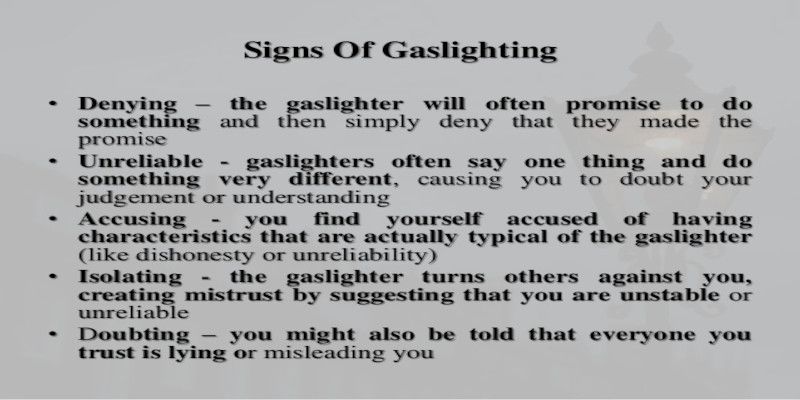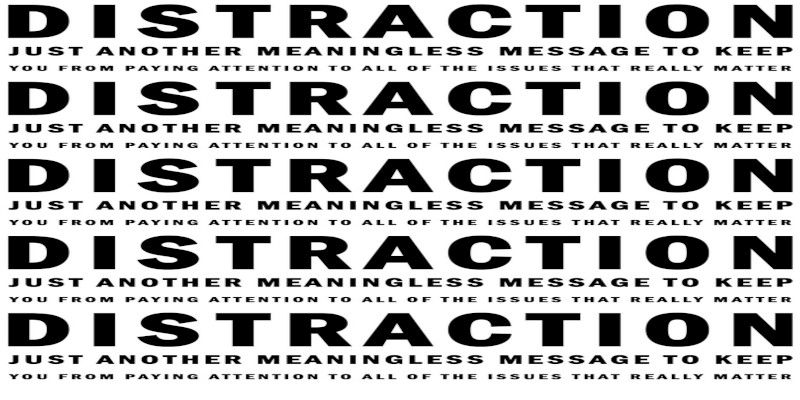Table of Contents
ToggleGaslighting is a toxic cycle that can mess with the mind of the victim. It’s not uncommon for them to start doubting their sanity, decisions, and feelings due to prolonged suffering afflicted by the offender.
Ultimately, this regularly leads to low self-esteem and doubting our sanity which can make it hard to interact with those around us.
That’s precisely why you should learn how to protect yourself from gaslighting behavior.
Why do people gaslight other people?

To gain power and control over you
The main reason why people gaslight other people is to gain power and control over them.
People can attempt to gaslight you to gain power and control over you. Because where your mind goes, your body will follow. And if your mind is broken, then you can’t defend yourself anymore. It means they can use you as their puppet.
When someone successfully gaslights you, then you’ll start to question your own beliefs and actions. As such, they’ll have a much easier time controlling you than they would if you were fully confident in yourself and your abilities.
As a survival mechanism
When folks have been gaslighted by their parents and so-called ‘close’ friends when they were young, they may have learned to utilize it as a defense/survival mechanism, although not a healthy one in the long run.
But why can it be considered a defense mechanism?
Because the individual exhibiting the gaslighting behavior is trying to maintain in charge over you in situations where they feel like they’re not in control. And not being in control makes them uneasy, and causes them great stress and anxiety.
For their gain
Some people try to bend your mind to their cause. Let’s use the following workplace instance as an example.
Let’s say you’re brave, and you’re pointing out the laziness and incompetence of one of your coworkers face-to-face.
Instead of admitting that it’s true, and trying to change that behavior to improve their own life, they get you to doubt your sanity. They will attempt that by employing tactics such as saying that you’re seeing ghosts, that you’re not a ‘team player’, and by shaming you.
In this case, they’ve gaslighted you into submission for their gain since you won’t contest them on this subject anymore. Furthermore, you’re no longer a threat since you won’t cause other people like your coworkers and/or boss to start thinking of them in this light either.
Out of spite

Never underestimate how vengeful a person can be. Some people are ridiculously petty and will go to great lengths to get back at you.
There’s nothing worse and more damaging than getting another person to doubt their sanity and sense of judgment. Sure, it’s one thing to disagree when you truly believe they’re wrong. But it’s a completely different matter if you’re deliberately trying to get others to distrust themselves by telling them they’re not thinking straight.
To hurt you
Some are truly evil, and even find enjoyment in hurting others. Those are the kind of people who will intentionally gaslight you for their amusement and satisfaction.
Of course, nothing positive can come forth from harming others. This is simply wasted time and energy that should’ve been used to fix their own issues instead of mistreating others because they’re feeling miserable themselves.
Because they don’t believe you
The least malevolent reason of them all. Some will simply not agree with your point of view, but not necessary because they have bad intentions and are out to get you.
Still, this can create a gaslight effect, even when it’s unintentional. People might try to make you change your mind, and tell you that you’re wrong since they simply see the world differently than you.
Thus, they might attempt to change your point of view and mindset out of the goodness of their heart. However, it’s also possible that they do so because of their own need to be right, because they’re confrontational, or because they can’t accept that humans have different opinions than them.
How to protect yourself from gaslighting?

Understand what it is
To find out whether you’re being gaslighted or not, you must first understand what it is to be able to identify it.
That’s why you should read up some information about what it is, how it happens, what people it typically happens to, and so on. Knowledge is power. And in this case, it’s no different.
Realize when it’s happening
Once you know what gaslighting is, and what it looks like, you can apply that expertise to identifying if, and when it’s happening to you.
Perhaps it’s only occurring at work by your lazy coworkers who don’t want you to work harder than them because your boss might notice that. Perhaps it’s happening by one particular person who’s looking to control you for their benefit.
Once you’ve discovered if, and when it materializes, is when we can start doing something about it.
Distance yourself from the situation
It’s hard to remain objective and rational when we’re personally involved.
That’s why it can be good to distance yourself from the situation to get less emotionally involved in the whole situation. This is also a great way to help you calm down, which makes it easier to be, and remain rational and objective.
Gather evidence of the gaslighting

To be sure that you’re being gaslighted, you need to search for and find evidence that it’s happening.
It’s easier and less painful to just accuse the other party of said behavior when we do something that’s not right since this means the fault doesn’t lie with ourselves. Yet, it is incorrect to wrongly accuse other people on a whim just because it benefits us.
That’s why you need to be sure that it’s happening, and also when it’s taking place. You need that knowledge since you’ll be using it to confront the person in question and to tell them exactly what they’re doing wrong, and what you want them to stop doing.
Ask other people for advice
Asking other people for advice can give you a different point of view from a party who’s not personally involved. That makes it easier for them to judge the situation while remaining impartial.
This can provide additional information and evidence that what’s happening is wrong and that you’re right to suspect that someone’s gaslighting you.
We can’t know it all ourselves, and asking for aid is a sign of courage, not weakness. It means you are brave enough to admit that you’re not perfect and that you require help from time to time.
Tell the person what they’re doing

Once you’ve gathered enough evidence that they’re exhibiting this toxic behavior, it’s time to confront them about it. Or you could just leave the situation alone and leave them altogether. It’s up to you.
Confronting them is about giving them a chance to break the toxic cycle. Tell them exactly what they’re doing wrong, how it makes you feel, and what you want them to change to move forward.
Stand your ground, do not doubt yourself
Chances are large that they will play the victim and blame it all on you, especially when you confront them with their actions.
Don’t fall for it, as it’s probably simply an attempt to gaslight you once more. If they don’t take ownership of what they’ve done, then it’s better to leave them behind altogether.
Remain confident. Don’t doubt yourself, or your judgment, and stand your ground to defend yourself. People are more likely to attempt to take advantage of someone they deem as being weak and spineless. That’s why you need to be strong, and defend yourself verbally, and even physically if needed.
Distance yourself if they’re unwilling to change

As previously said, distance yourself from them if they’re unwilling to change. It can even be perfectly reasonable to distance yourself from them once you know they’re deliberately employing said strategies to control you.
Nobody has the right to put others down for their gain and amusement. That’s why you need to separate yourself physically and emotionally from those who are trying to harm you.
Seek professional support if needed
When in doubt, or feel like you’ve suffered too much damage to heal on your own from being the victim, you should at least consider seeking professional help.
They can help you to identify incorrect thoughts and to heal past wounds. They can also supply you with additional information about what happened, and what actions you can undertake to prevent it from happening again in the future.
Frequently Asked Questions (FAQ)
How do I stop being gaslighted?

There are a multitude of things you can do to stop being gaslighted once you’re sure you’re being targeted. The most effective tactics are:
Distancing yourself
The best thing you can do when you notice someone’s gaslighting you, or simply being detrimental to your mental health for that matter, is distancing yourself from them. Preferably by cutting them out of your life altogether.
If that’s not possible, either because they’re your coworker, or in your social circle, then try to keep them at a distance, don’t tell them anything personally related, and only interact with them professionally for as much as necessary.
Making them aware of their harmful behavior
Another thing that might work is making them aware of their harmful behavior. If they’re currently unaware and well-meaning, then they might take it to heart and attempt to change their ways.
If they know what they’re doing, or are arrogant, then they will probably take it the wrong way and attempt to deflect, and distract, all the while blaming you.
They will make it seem like you’re the offender, and they’re the victim. In actuality, this isn’t true at all. They’re just attempting to change the story in such a manner that it fits their narrative.
Set boundaries

It’s possible that you can’t permanently get rid of the offender. Either because they’re coworkers, or in your social circle. That is unless you decide to quit your job or leave your social circle, which is quite harsh and unadvisable in most instances.
Yet, it is certainly possible, and advised, to set clear boundaries so that you don’t give them any more power and control over your life than they already have. This way, you’ll limit their potential to impact your life negatively.
Telling them to stop
Telling them to stop is so blunt, straightforward, and honest that it can go one of two ways.
In most of the cases, especially when they are intentionally gaslighting you, they will try to change the narrative. They will blame you, deflect accusations, and make it seem like you’re crazy in an attempt to make you the bad guy, and they’re the good guy.
However, sometimes people can unintentionally gaslight others as a defense mechanism, or because they’re just plainly unaware of their actions.
Those kinds of individuals might just take your words to heart, and stop said things. They might even try to change their ways once they become aware of their errors.
What are the tactics of a gaslighter?

Lying about things that you know aren’t true
One of the main tactics they employ relies on deceiving you. They will constantly lie about things that in reality you just know aren’t true.
Yet, because they’re such adept liars, and perhaps since you’ve been gaslighted for so long, you might start believing it since you start questioning your own sanity.
Trust your judgment, and have faith in your intuition and logical thinking prowess. You must combine both to employ a well-balanced analytic thinking strategy.
Accuse you of doing vile stuff that in truth they’re doing to you
They will accuse you of saying/doing things that in truth they’re doing to you.
What they’re trying to do is make you the bad guy, while they’re the victim. Don’t fall for this trap. It’s often the folks who constantly accuse and blame others that are the biggest offenders themselves.
Changing their story
Another tactic that gaslighters regularly employ is continuously changing up their story to keep you on your toes. This serves to sow doubt and confusion.
This can make it easier to spot they’re lying when you have a good memory, but can also make them incredibly believable since they typically say those stories with such conviction.
That’s why you need to learn how to spot liars, and why you need to focus on both the big picture, and the details as well to figure out whether someone is being truthful or not.
Bombarding you with love
Another thing they do to keep you around, especially when they notice you’re trying to distance yourself from them because of their actions, is bombarding you with love.
They will tell you how great you are, how vital you are to their happiness, and how much they would miss you if you wouldn’t be around them anymore.
They’re trying to appeal to your ego, all the while making you feel guilty should you even attempt to leave, or distance yourself from them.
Deflecting and distracting you

When you question them, or their actions, they will instantly and constantly deflect your questions and accusations by changing topics or dancing around your question(s).
Another tool they often use is to start questioning you instead and berating you for even daring to question their actions and loyalty to you. Saying that they would never do anything that could harm you.
Undermining you
They will most certainly undermine you behind your back by spreading rumors and talking bad about you. But sometimes they will do so in your face as well by distracting and actively deluding you.
They want to undermine your psyche so that they’re in control. This means they will employ all sorts of underhanded tactics to get you into a state of uncertainty.
Calling you overly sensitive and insane
Another way to sabotage you, and inhibit your ability to talk back to them, is by calling you too sensitive and mad. They’re trying to insult you to the point where you would just shut up and follow their lead.
Of course, make sure you’re not overly delicate, as some are very prone to lashing out because they take things too personally.
Blaming others

One giveaway that people are gaslighting is when they constantly put all the blame on others and the circumstances, but never on themselves.
When something goes wrong, it’s always the fault of an outside source. Another person, a certain situation, a malfunction, but never them. They just don’t take accountability and responsibility when things inevitably go wrong.
Pitting you against others
They will pit you against other people to deflect any possible attention that they’re applying gaslighting behavior, and attempting to control you because you’re focused on the person you’re arguing with.
Generally, good people and friends don’t pit you against other folks. That’s not a healthy thing to do, nor is it beneficial to your mental state. If someone is stirring up fights between you and another person, distance yourself from them immediately!
Name-calling
Calling you names doesn’t mean that they’re calling your name. It stands for insulting you and calling you any improper, offensive word that’s in the dictionary.
Sometimes, when you’re in a fight, and the mood is tense, both parties may call each other names. That’s not necessarily a sign of gaslighting, as it’s possible that it’s being done to reduce tension.
But when a specific individual employs this tactic often, then it’s a sign that there’s something more to it than meets the eye. It means it’s a persistent issue, and you should figure out why they do so.
Intentionally changing their behavior
Another cheeky technique they use at times is deliberately changing their behavior to throw you off. However, when you call them out on it, they will throw it back at you and make it seem like you’re tripping, and you’re the crazy one.
It can make you start doubting your sanity because why would someone intentionally change the way they act? The answer is that they’re trying to make you insecure and start distrusting your thinking processes.
What is the end goal of gaslighters?
What is the goal of gaslighters?
What does a gaslighter fear?
Gaslighters ultimately fear losing control over others.
What is the origin of gaslighting?
The term ‘gaslighting’ first originated in 1938 from a British stage play that was called Gas Light.
In 1940, it was produced as a film called Gaslight in the United Kingdom. Afterward, in 1944, it was produced as a film in the United States.
These dramas showed the basic components, if somewhat juvenile, of the gaslighting technique employed by certain manipulative people.
How toxic is gaslighting?

Gaslighting is very toxic to the victim since it is detrimental to their mental health, and can cause all sorts of psychological disorders as a result.
All that doubt and insecurity being placed by the gaslighter, all the while being constantly accused of being the one who’s wrong and crazy is exceedingly mentally draining.
In extreme cases, gaslighting can cause you to start doubting your sanity, and your thought processes. Thus, it becomes hard to tell the truth from lies.
Being in a relationship with a gaslighter, no matter if it’s romantically, or kinship, is unhealthy since it’s toxic from the very start.
It can feel hard if not impossible to leave the offender since they’re typically adept at reeling you in and keeping you hooked. Over time, this can cause you to lose trust not only in the gaslighter but also in other people.
Do gaslighters target certain people?
Yes, gaslighters tend to target certain people. Or rather, individuals exhibiting certain characteristics that make them prone to being manipulated.
Who is most susceptible to gaslighting?
People who have low self-esteem, and self-confidence and those who are inclined to doubt themselves are prime targets for gaslighting behavior.
People who possess certain features such as anxiety, depression, and ADHD are more likely to be targeted as well. Anxiety and depression may be the result of, or partially explained by low self-esteem and confidence.
Very assured and headstrong folks are unlikely to fall prey to those harmful individuals. They’re likely more resilient to doubting and questioning themselves because of these particular traits.
Do gaslighters ever change?

It’s possible, but unlikely, that gaslighters will change their ways.
Just think about how hard it is to change yourself for a second. It requires honesty, time, and a lot of effort to make small changes to yourself. This is not something that the majority of people are willing to do since it’s difficult.
The best chance for change lies with those who display gaslighting behavior but are unaware that they are doing so. That is if they’re willing to be honest with themselves, open to critique, and willing to work hard to better themselves.
In the end, it’s about learning to realize the toxic patterns they’re falling victim to, and addressing them appropriately.
Those who are well aware of what they’re doing are unlikely to change. There must be a reason why they’re presenting said behavior, and why it’s persisting over time. That’s most likely due to them wanting power and control over you for their profit.
It’s also possible that they do so because they enjoy inflicting pain. And those are precisely the most vile, and evil of folks.
Are gaslighters insecure?
How can I tell if I am gaslighting or being gaslighted?

So how can I tell if I am gaslighting, or being gaslighted? Multiple signs can be good and reliable indicators.
How to know if someone is gaslighting you?
Undergoing gaslighting can cause many issues. Constantly second-guessing yourself is one of them.
Other troubles can include feeling confused, overwhelmed, and being unsure of what you’re thinking, and doing, and your capacity to make good decisions on your own accord.
Other signs that you’re a victim of being gaslighted include:
- Feeling the need to apologize all the time
- Loss of self-esteem and confidence
- Feeling and believing like you can’t do anything right
- Believing you’re incapable of making good decisions by yourself
- You feel lonely and helpless
- Constantly asking yourself whether you’re too sensitive
- Believing the fault lies with you when things go wrong
- Feeling frustrated, hopeless, and/or emotionally numb
- Feeling disconnected from the world and yourself
- Regularly experiencing anxiety, worry, and/or nervousness
- A continuous feeling that something’s off, that something isn’t right, although you can’t pinpoint the cause
- You wonder if your personality is like they say you are
- You feel incompetent
- You frequently question what’s wrong with you
- You are let down in yourself and who you’ve become
How to know if you’re gaslighting someone?
It’s also possible that you are the person showing gaslighting behavior. This is how you can tell you are gaslighting others:

- You implore them did or say things that you know all too well they didn’t do
- You laugh at or deny their recall of the events that took place
- You renounce any error and misdoing that might’ve happened
- You change or recite events to put the fault on the other party
- You insist that your story is right all the while refusing to think about the facts or their point of view
- You show uncertainties about other people’s state of mind, behavior, and/or feelings
- You regularly call other people things such as being “mad” or “too delicate” when they verbalize their vision and concerns
- You believe that it doesn’t hurt to lie to others
- You discredit others by employing tactics such as gossiping and spreading rumors
Can someone be gaslighting and not know it?
Can someone gaslight unintentionally?
Someone can be gaslighting without knowing it. Sometimes, people gaslight unintentionally as a subconscious defense mechanism, or to deflect having to take accountability for an error.
Unintentional gaslighters don’t have the intention nor the desire to exploit others for their benefit. They do so without realizing it.
What mental illness causes gaslighting?
Multiple mental illnesses can cause gaslighting.
Especially those suffering from mental disorders such as antisocial, borderline, and narcissistic personality disorders are prone to gaslighting behavior since these illnesses tend to give the afflicted individuals a twisted view of the world, others, and themselves.
This distorted perspective of the world often gives them the tendency to manipulate others for their own gain. Particularly to control others, and to gain power over them.
Is gaslighting a trauma response?

Gaslighting can be a trauma response, although not always. Since gaslighting is mostly a felt experience, it’s up to the person on the receiving end’s perspective whether they’re being gaslighted or not.
Some people do gaslight as a response to trauma they received in the past in situations they deem dangerous and/or threatening.
They may do so in an attempt to control the situation as a survival mechanism. Otherwise, they might feel anxious and fearful.
More vile reasons would be to gain power, for personal gain, out of spite, to hurt you, or because they don’t believe you.
Needless to say, being gaslighted can create mental trauma that brings mental disorders to the targeted individual.
Final note

Gaslighting isn’t healthy for the offenders, and most certainly not for the victims. That’s why you should be capable of defending yourself. And a kill-or-be-kill mentality will do just that.
Concerning the offenders, it’s an unhealthy way to cope with insecurities and to gain control and power over a situation. In the end, those around them will end up leaving to break the toxic cycle, while the insecurities of gaslighters won’t go away since they aren’t being worked on.
For the victims, it’s unhealthy since it messes with their minds. It will twist their psyche in such a way that they will start doubting their decisions, feelings, and ability to make their own choices. In extreme cases, it will even make you question your sanity
The antidote? The truth and courage. Be courageous enough to tell the truth, and to address your weaknesses rather than trying to twist the situation to benefit you out of insecurity and doubt.









